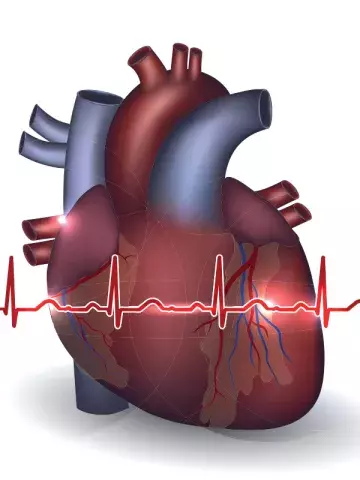Study supports cardiovascular safety of testosterone replacement therapy
By Melanie Hinze
Testosterone replacement therapy does not appear to be associated with increased risk of major adverse cardiac events in overweight men with, or at high risk for, cardiovascular disease, finds a large clinical trial with a treatment duration of about two years.
Published in The New England Journal of Medicine, the industry-funded Testosterone Replacement Therapy for Assessment of Long-term Vascular Events and Efficacy Response in Hypogonadal Men (TRAVERSE) trial, was a multicentre, randomised, double-blind, placebo-controlled study of 5246 men aged 45 to 80 years (mean age 63 years). Participants had pre-existing, or were at high risk of, cardiovascular disease and reported symptoms of hypogonadism, such as decreased sexual desire, decreased spontaneous erections, fatigue or decreased energy, low or depressed mood, or hot flashes. They also had two fasting testosterone levels of less than 10.4nmol/L.
Participants were randomly assigned to receive either daily transdermal 1.62% testosterone gel or a placebo gel, with a mean study duration of treatment of 21.7 ± 14.1 months and a mean follow up of 33.0 ± 12.1 months.
The primary safety endpoint was the first occurrence of any component of major adverse cardiac events, a composite of death from cardiovascular causes, nonfatal myocardial infarction or nonfatal stroke in a time to event analysis.
A primary cardiovascular endpoint event occurred in 7.0% of patients in the testosterone group and 7.3% of patients in the placebo group (p<0.001 for noninferiority).
However, compared with the placebo group, nonfatal arrhythmias warranting intervention occurred significantly more often in the testosterone group (p=0.001), as did atrial fibrillation (p=0.02) and acute kidney injury (p=0.04).
Professor Bu Yeap, Professor in the Medical School at the University of Western Australia, Perth, and Endocrinologist in the Department of Endocrinology and Diabetes, Fiona Stanley Hospital, Perth, said TRAVERSE was the largest randomised controlled trial of testosterone ever conducted, and the first to be designed and powered as a cardiovascular safety trial.
‘The results are noteworthy, with no difference in major adverse cardiovascular events in testosterone compared to placebo-treated men,’ he said. ‘Rates of cardiovascular deaths, and deaths from any cause, were similar across both groups,’ he added.
Professor Yeap said these results provided reassurance on the cardiovascular safety of testosterone treatment in older, overweight men with cardiovascular risk factors or disease.
The authors wrote that these findings may enable a more informed consideration of the possible benefits and risks of testosterone therapy among middleaged and older men with hypogonadism.
N Engl J Med 2023; doi: 10.1056/NEJMoa2215025.
Image © Timelineartist/shutterstock.com


